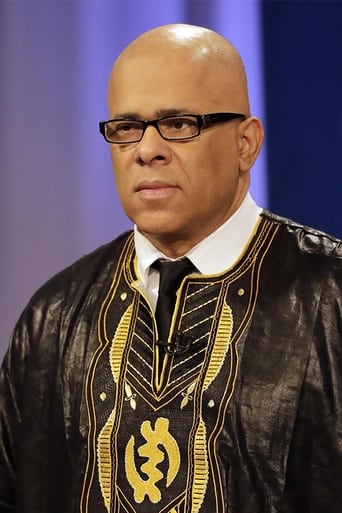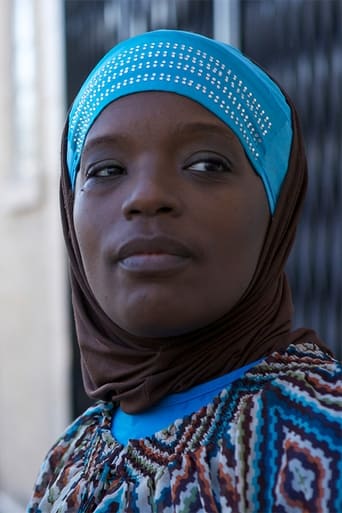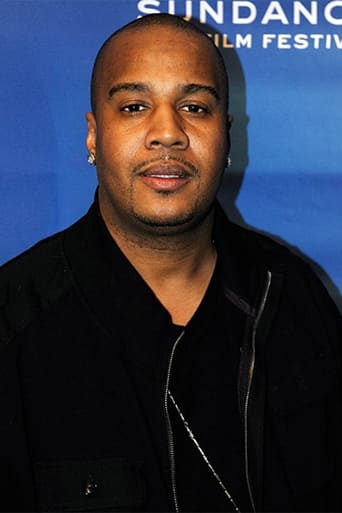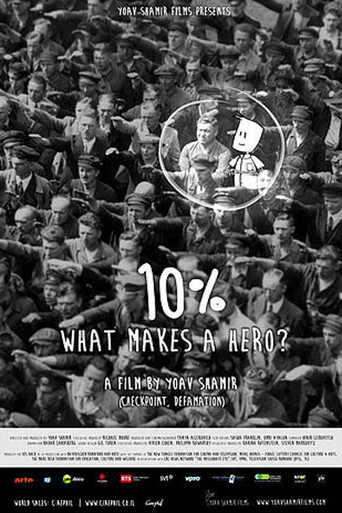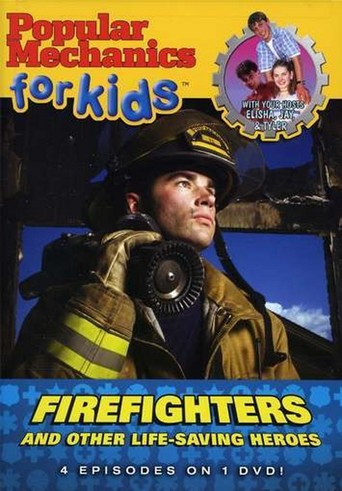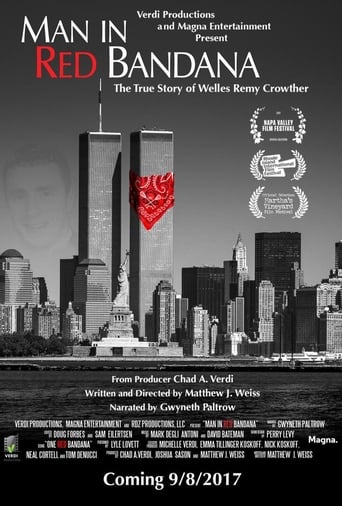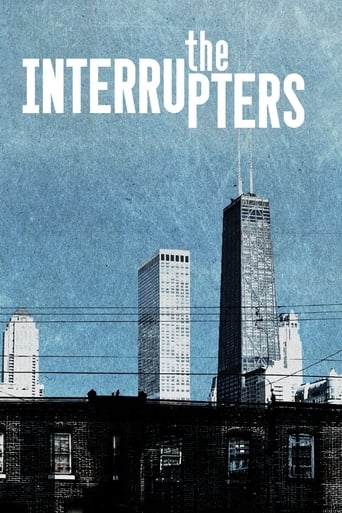
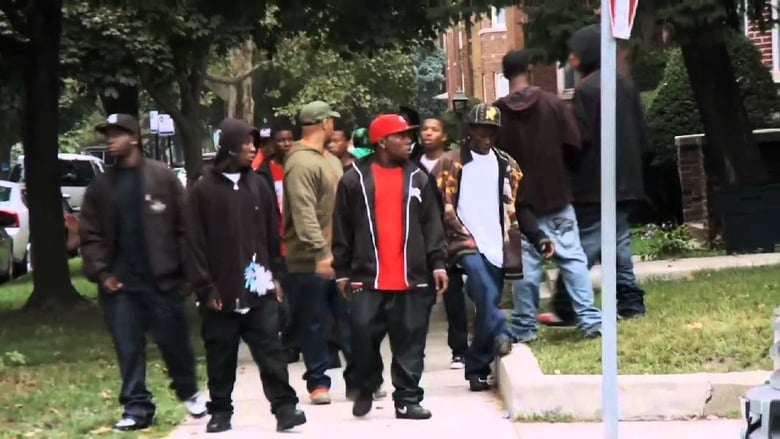
The Interrupters (2011)
The Interrupters tells the moving and surprising stories of three Violence Interrupters — former gang members who try to protect their Chicago communities from the violence they once caused.
Watch Trailer
Cast
Similar titles
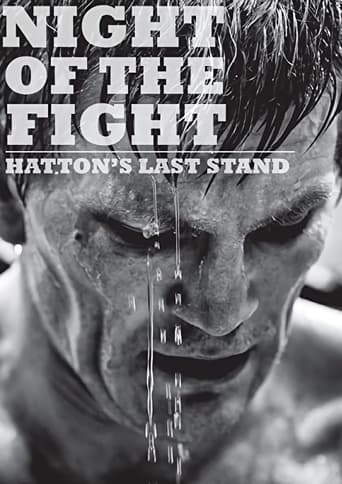
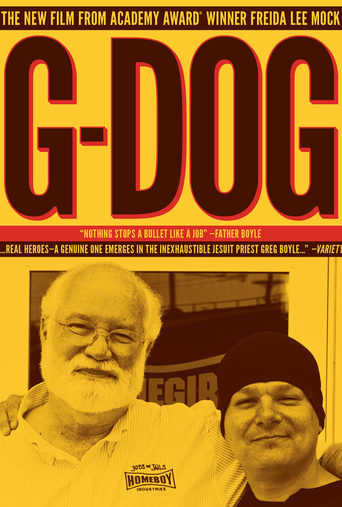
Reviews
I'll tell you why so serious
This is a coming of age storyline that you've seen in one form or another for decades. It takes a truly unique voice to make yet another one worth watching.
An old-fashioned movie made with new-fashioned finesse.
A terrific literary drama and character piece that shows how the process of creating art can be seen differently by those doing it and those looking at it from the outside.
Déja Spikes UPP 101The director Steve James of The Interrupters takes viewers on a journey through the brutal streets of Southside Chicago and the efforts to curb the violence plaguing these streets and their residents. In The Interrupters, three violence interrupters each dwell on their past incidents with the street violence they once employed to attempt to steer young people on the right track. The documentary's primary focus is the urban violence epidemic that was running rampant on Chicago's streets during the development of the documentary. With Chicago being heavily portrayed in the media, specifically the Englewood neighborhood which was shown in the documentary, it is apparent that violence was and continues to be an issue of popular concern. Upset citizens as well as unfamiliar outsiders often express their concerns about the violent behavior, exclaiming that "something needs to be done about the crime in Chicago." The Interrupters explores the efforts of people genuinely oriented with curtailing the violence that puts Chicago's citizens, explicitly youth, at risk. In 2011, The Interrupters' release year, Englewood had more murders than any other police district in the city (Moore 1). Englewood's crime problem is expanded because of other urban woes troubling the neighborhood. Unemployment in and around Englewood is an extraordinary 35 percent. Consequently, it is one of the poorest enclaves in Chicago (Moore 7). The documentary uses the stories of Caprysha, a teenage parolee who lives in a halfway house, "Lil' Mikey", who is recently released from prison and wanting to provide a better example for his siblings, and Flamo, a young man who is enraged by the arrest of his mother and brother and yearns for his own form of violent justice, to explore the struggles caused by crime and violence that are employed on the citizens of Chicago. The most prominent argument of the documentary seems to be that transformation from the distorted cultural norms of crime and violence is actually conceivable through the testimonies of the three violence interrupters. This argument appears to be based on theoretical speculation, only supported by the personal accounts of the three interrupters. There was no formal research done. The individual experiences and lifestyles of the three violence interrupters serves as the formalized foundation for this philosophy. The documentary portrays the notion that although one may fall victim to the misconduct and brutality that afflicts the community, it is possible to overcome infectious obstacles with guidance and support. This argument is supported by the first interrupter, Ameena Matthews, who is a former gang member the daughter of the founder of the Black P. Stones gang. After being shot, she left the gang life and transformed into a spiritual Muslim. During The Interrupters, Matthews uses her experience and street credibility, to serve as a grief counselor for the family of Derrion Albert, a teenager whose horrific beating death made national headlines. Additionally, Matthews mentors and counsels Caprysha, providing her with tough love in the hopes of getting her to obey the terms of her parole while eventually getting her life on the right track. The argument of potential transformation is further exemplified through the second interrupter, Cobe Williams. Williams, a product of gangs, homicide and narcotics, served twelve years in prison for attempted murder and drug trafficking. Williams transformed into a devout family man and devoted his life to making sure his son had a better life than he did. Williams works with two brothers who cannot keep the peace between each other. He also mentors Flamo and "schools" him with learned knowledge to protect him from the dangers of seeking street revenge. The final illustration of the "about-face" argument is through the third interrupter, Eddie Bocanegra. Bocanegra spent fourteen years in jail for killing a rival gang member. After his release, he threw himself into community work and began teaching art classes. Bocanegra works closely with "Lil Mikey" and even takes him to the barber shop he robbed to make a heartfelt apology and further demonstrate that troublemakers do have the potential to "do the right thing". With Bocanegra's efforts to change and better himself, he wished to apologize to his victim's unforgiving family. However, through Bocanegra's work, he was ready to forgive himself. The turnaround concept seems to read true in the film. Preceding the guidance and consultancy from Cobe Williams, Flamo was able to impede his desire for pugnacious revenge and was last seen in uniform at a security job. This strengthens the theory because although Flamo spent more than half of his 32 years in prison, he was able to turn his life around with the help from someone once in his shoes. The concept also reads true regarding "Lil Mikey" who, obtained a job as a gardener and put his violent past behind him. However, this theory hits a bump in the road, Caprysha ends up back at a juvenile detention center for violation of her parole. This yields that all interventions will not be successful. In order to provide a more realistic approach as well as clearer insight into the issue of urban violence, The Interrupters should have deepened their argument by researching how often at-risk youth and young adults transform their delinquent behavior and how long this change actually lasts. The interviews with gang members and families of victims as well as graphic scenes of heightened violence seemed repetitive in its solid mindset of anger and frustration. The documentary failed to display citizens who actually are not upset with the community they live in or dispute that troublemakers will ever change their ways. A part two of the documentary would be immensely helpful to see if the interrupters' efforts were successful in the long run in regards to their interventions and to evaluate if their efforts have bettered the city of Chicago and its ills as a whole. BibliographyMoore, Natalie. "Chicago's highest murder rate in Englewood." WBEZ 91.5, 5 Jan. 2012."The Interrupters." Frontline. PBS. 29 July 2011.
This film is recommended.Flowers and candles, hand-printed messages written on notebook paper tacked to makeshift shrines, all decorated with photographs of young victims. This touching memorials litter the blood-spattered streets of Chicago and are the remains of the day in The Interrupters, a powerful and disturbing documentary by the talented Steve James ( Hoop Dreams ).His film takes the moviegoer directly into the crime-ridden neighborhoods as we meet a group of peacemakers trying to restore sanity and preaching their anti-violence message to the choir. The group is called CeaseFire and it is made up of ex-gang leaders and former convicts whose motto is Stop the Violence - Save a Life.James directed and photographed his documentary and focuses on three interrupter and their "scared straight" strategies of tough love and reality checks. We met Cobe Williams, a former gang member and family man now whose father was killed during a street fight, Eddie Bocanegra, a young man easily impressed by the gang's image of fast cars, money, and girls who served 14 years for murder and now uses art as a method of expression and conflict mediation, and the primary spokesperson, Ameena Matthews, the daughter of a gang leader who was physically, emotionally, and sexually abused at an early age and has since let faith and family lead her away from that life-style and keep her grounded.We also met some of those troubled teens: Caprysha, a defeated Precious type, living in a halfway house, dreaming of a better life while constantly lying and breaking her parole; Lil Mikey, released from prison and wanting to be a better role model for his siblings; and Flamo, a young man enraged with his mother and brother's arrest and wanting his own form of justice. It is impossible not to care about their people and their lives.The film consists of interviews with gang members, families of their victims, and scenes of escalating violence. At times, The Interrupters becomes slightly repetitive in its interventions and lock-step mindset of anger and frustration. More judicious editing could have made the film even more forceful. But the passion for its compelling subject and James' craft as a filmmaker make up for those minor complaints.The documentary gives us no easy answers as drugs, unemployment, alcohol, poverty,and guns still are a major reason for the neighborhood's ills. Politicians come and go with each election, giving lip service and promises. Yet these people and their difficult lives become the on-going problem in search of a solution, and groups like CeaseFire seem to be their only course of positive action. The Interrupters allows us to see a world that we can never fathom and acknowledge the spirit of a group of strong-willed survivors, trying to make a difference and save a life or two throughout a normal day. GRADE: BNOTE: Visit my movie blog for more reviews: www.dearmoviegoer.com
This is a moving and challenging, if rather long, documentary that follows the progress of the interrupters over the course of a year. However, it does not feel too long and the 125min passes surprisingly quickly.The disturbing gang violence and cycle of revenge in Chicago is sensitively rendered; there is no gratuitous detail. The interrupters are trying to intervene, to interrupt the cycle of shootings.But there is hope. Hope in that the interrupters are themselves former gang members who are now working to reduce the violence; and hope in that they build relationships with others, and in their perseverance not only is the cycle of violence interrupted, but the lives of the individuals are changed for the better.Sensitively made, gives a real insight into the situation in Chicago; and offers real hope that a leopard can indeed change its spots.Highly recommended.
Steve James is a remarkable documentary filmmaker who has given us a series of amazing films starting with Hoop Dreams that explore some of the more difficult issues in our society including race, poverty, crime, and violence. His film on the Trial of Allen Iverson revealed the complex racial discourse at work beneath his hometown of Hampton, VA. His most recent film, The Interrupters, screened today at Austin's SXSW Film Festival. It is a powerful film that captures the plague of urban violence that plagues are cities – in this case Chicago – and goes beyond documenting to show a group of activists (many with troubled pasts) working for a group called Ceasefire. Ceasefire seeks to engage troubled young people and interrupt their dysfunctional behavior patterns of anger, crime, drug use, irresponsibility and violence. The Interrupters are acting heroically to try to save their imploding self-destructive communities. While the footage and the story are compelling, it could still use some editing since at over 2.5 hours it is a little too long. The length is understandable since James filmed over 300 hours, but it still needs to be paired down further to capture a manageable story.The other problem with the film is more complex. The Interrupters are fighting on the front lines in their efforts to save their communities. But the fight that they are engaged in is almost impossible, because their personal and human efforts to save individuals are divorced from a larger political reality. The film is a deeply personal and human, but it fails to address the deeper social problems in education, unemployment that have created the epidemic of violence. They are treating the symptoms of those who are already infected without searching out the causes of the disease.Sadly, the problems of the poor have disappeared from our political discourse since the collapse of the "War on Poverty." The current administration – led by our first urban President in decades - has failed to offer any sort of serious urban or anti-poverty agenda. Our political discourse focuses on the "middle class" and pretends as if poverty doesn't exist. Poverty has ceased to exist on American TV and in most of our news media coverage. Middle Class America has stopped seeing poverty which is quietly hidden away outside of our consciousness. The social contract that binds our society together is broken. We need far more films like the Interrupters to confront the American public with the realities of poverty and violence that are eating away at the soul of our society.Hopefully, many people will watch a film like The Interrupters and ask themselves two questions: What can I do as an individual to help groups like this make a difference in my community? What can I do as a citizen to get my government to act to make the structural changes that are needed to transform these communities?
